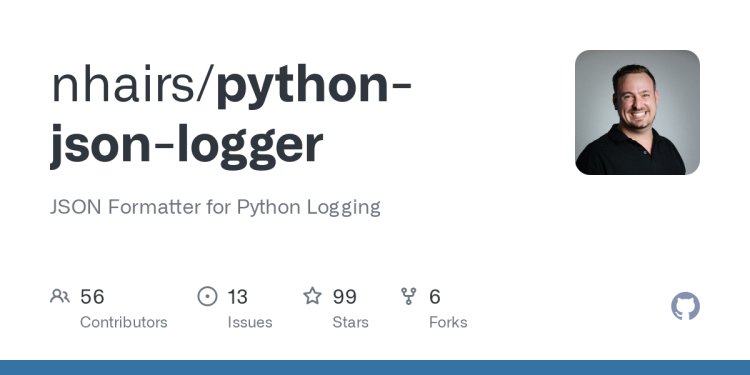Critical Remote Code Execution Vulnerability in Python JSON Logger
A recently discovered remote code execution (RCE) vulnerability in the widely used Python JSON Logger package (CVE-2025-27607) exposed systems to potential attacks due to a missing dependency. The issue affected versions 3.2.0 and 3.2.1, allowing malicious actors to exploit the flaw if users installed development dependencies. The vulnerability has been patched in version 3.3.0, and users are strongly urged to update immediately to secure their systems.

Critical Remote Code Execution (RCE) Vulnerability Found in Python JSON Logger
A recently discovered vulnerability in the widely-used Python JSON Logger package, tracked as CVE-2025-27607, poses a significant risk to users by enabling potential remote code execution (RCE). The flaw, which affected versions 3.2.0 and 3.2.1, was tied to a missing dependency that could be exploited by malicious actors to execute arbitrary code on affected systems.
Discovery and Details
The vulnerability was uncovered by security researcher @omnigodz, who was conducting experimental research focused on supply chain attacks. The issue stemmed from the msgspec-python313-pre dependency, which was initially declared in the pyproject.toml file of Python JSON Logger but was deleted from the Python Package Index (PyPI) by its original owner. This left the name open for third parties to claim, potentially allowing them to inject malicious code.
Between December 30, 2024, and March 4, 2025, the affected versions of Python JSON Logger (3.2.0 and 3.2.1) could expose users to RCE if they installed development dependencies, specifically by running the command pip install python-json-logger[dev] on Python 3.13.x environments. This action would unwittingly download and execute a malicious version of the msgspec-python313-pre package.
To demonstrate the potential for exploitation, the researcher published a non-malicious version of the dependency under the same name, but quickly deleted it to prevent harm. The PoC (Proof of Concept) release served to showcase the attack method without violating PyPI’s policies or endangering users. Following this, the researcher registered the package name to prevent future malicious use.
Vulnerability Impact and Severity
While initially rated as High with a CVSS score of 8.8, the severity of the vulnerability was later downgraded to Low. This change was prompted by actions taken by PyPI administrators who blocked the name msgspec-python313-pre, preventing it from being claimed by malicious actors. Despite the downgrade in severity, the flaw underscored the importance of vigilance in managing dependencies and securing package ecosystems.
The Python JSON Logger package, with over 46 million monthly downloads, is extensively used to format JSON-based log records. If exploited, the vulnerability could have allowed attackers to inject and execute arbitrary code on any user system installing the package’s development dependencies.
Fix and Mitigation
The issue has been fully addressed in version 3.3.0 of Python JSON Logger, which users are urged to upgrade to immediately. The fixed version eliminates the missing dependency issue and ensures that future installations are secure.
To mitigate the risk, users should:
-
Upgrade to python-json-logger version 3.3.0 or higher using the following command:
pip install python-json-logger --upgrade -
Avoid installing development dependencies unless absolutely necessary.
-
Regularly verify the integrity of third-party dependencies and monitor for suspicious activity in their environments.
Recommendations for Developers
This vulnerability highlights a critical issue in open-source supply chain security, particularly in how dependencies are handled and maintained. Developers of open-source libraries should be proactive in auditing and updating their projects, especially when removing or altering dependencies.
Additionally, it is vital to promptly push changes and new versions to reflect any updates, such as removing deprecated or unregistered dependencies. This ensures that users are not left vulnerable to exploitation.
Conclusion
While the immediate risk of the CVE-2025-27607 vulnerability has been mitigated through the release of version 3.3.0, the incident underscores the ongoing challenges in maintaining secure package ecosystems. Developers, security teams, and users must remain vigilant and update their dependencies to safeguard against potential supply chain attacks.













